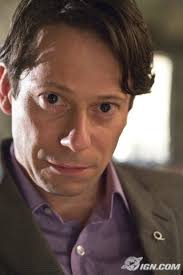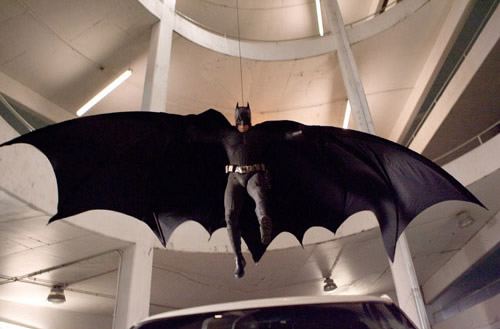While essentially an extended interview of one man in one location,
“Speaking Freely: John Perkins” posits numerous paradigm shifts for the economically and politically minded.
Filmicly, it is boring. As one who possesses an economics undergrad major, and a passionate advocate for social justice, I found
John Perkins’ description of the world to be a good, hard push on a swing. It spun me around and gave me a new perspective on what I had thought I knew so clearly, and simultaneously connected with suspicions I’d had for some time.
In the opening minutes of the documentary, Perkins claims that poverty is not the core problem.
It is extreme wealth that necessitates poverty, which is to blame. It is not possible for a small percentage of the world to be as profoundly wealthy as many are in “developed” nations, without the rest of the world being profoundly poor, without resources or opportunities for significant advancement. Thus over half of the world’s population lives on less than $2 a day. And they are getting what they pay for.
One of the first concepts taught in economics is
scarcity. There are a limited number of anything. There are only so many gold deposits on earth, so many potatoes at any given time, or so many hours in a day. We affix a price as a means of estimating the goods’ or services’ relative value. Four frappaccinos is worth as much as a sweater at H&M. So for a small percentage of the people on earth to control a vast percentage of the resources, objects, land and people, it is necessary for most people to not have any access or control over those scarce resources.
Wealth is a representation of power over goods and people. Instead, the conversation in our society is directed towards the lives of the poor, when really their circumstances and choices have little effect for change. It’s the choices of the wealthy and powerful that determine the circumstances of the lives of the poor. The poor have few choices. Should I work at this degrading job or work at that poorly paid job? Do I live in this slum or that shack? What can I afford to eat? So we should flip the conversation around and discuss how the wealthy and powerful can equalize the circumstances by equalizing access to resources. And this sounds very Robin Hood indeed.
Who is in control of this system? The corporatocracy. This marvelous word, apparently created by Perkins, draws attention to the power structure of the economy. We don’t live in a democracy. Corporations and those who run them finance our elections. They control the conversations politicians can have and what most people can learn about through the media. They are not a monolith, but rather operate within the same system, based on the assumptions of economic theory, and resultantly think alike.
And then he gets into his area of expertise. As an
“economic hitman”, his self-appointed title, Perkins worked for one of the major international monetary funds, like the IMF or the World Bank, convincing the nations of the global south to accept development loans in exchange for accepting disadvantageous policies, such as dictating the subcontracting US or European companies or dictating the domestic policies of such “developing” nations.
As evidence he sites the fact that the poor are poorer and more populous. If these financial deals were indeed intended to improve the standard of living of people in the global south,
they have failed. The forecasts created to justify these loans were totally off. This points to the real intentions of those who designed these loans. The loans have been clearly been designed to favor the wealthy nations, and particularly the wealthy corporatocracy, and to maintain the status quo.
While the World Bank was founded upon noble intentions to rebuild Europe after WWII, it quickly devolved into a means of securing loyalty to the west and alienating the communists, who would disturb the distribution of wealth and power. Once the CIA succeeded in inserting the Shah of Iran, as Perkins' narrative formulates, the powers that be realized that war, an ugly and embarrassing means, was not the only means of maintaining their hold. They could use economic incentives to manipulate a few powerful leaders in various nations to follow their dictates.
Once these nations are securely in debt, wealthy nations extort these weaker nations' resources by forcing them to sell off their natural resources or keep their wages and benefits low for multinational companies to take advantage of.And we all, on some level, do know that this is how it works. We live in a society in which brazen selfishness is considered street smart or intelligent. Of course USAID doesn't pass on its finances to foreign NGOs. Why would the US government want to benefit foreign NGOs? Well, because the money is intended for the people living in poverty and it doesn't matter how it gets to them. Of course, we say, we can't just give the poor money. They'll use it for other purposes. Those governments are corrupt. That homeless guy will spend it on crack.
We continually need to maintain power over other people by defining the ways in which they live their lives so that it will benefit us the most. What makes people without financial power more dangerous than those with it? Are they really more sinister? more psychologically damaged? more reckless? more financially stupid? Our nation spends $12.4 billion a year on plastic surgery and we're all worried that the guy on the street is going to buy beer with the nickel we might give him. But I digress.
Aren't there checks and balances in these large non-governmental financial organizations to prevent this kind of corruption? Yes, says Perkins. There are some within the IMF and World Bank who's job it is to point out inconsistencies and manipulations. But inevitably, it's in the interest of these institutions to go forward with the loans. The money, after all, comes from the wealthy governments, which comes from the wealthy corporations, and the leaders of these institutions are selected by the wealthy governments, like Paul Wolfowitz, recent Bush placement as president of the World Bank.
What I find most interesting is his personal analysis of how good people can do bad things. Because their actions are not illegal, they exist within large structures, it takes so much effort to make small improvements, and they are making good money, it's easy to justify their part of the system.
I always wonder why people have different takes on the world than me. Is it lack of information or lack of education or what? Am I fortunate enough to have had the financial cushion of my education, which enabled me to move into the arts, knowing that if worst comes to worst, I'll be a secretary at a non-profit, like my last job. I won't starve. I have access to a living wage without sacrificing too much. So I can buck the system. and I've been raised knowing that the church isn't right about everything. Women are equal to men so they should be able to be priests. And the government isn't always right. Look at Watergate and the Iran-Contra scandal. Our nation has done some pretty terrible things, like killing Native Americans and supporting legal slavery and discrimination. So that leaves existing within a large structure and that it's just plain hard to get anything to change. Fair enough. People discriminate when everyone around them does the same. People want to enjoy life and not struggle every day against the flow. I see that. So what do we do?
This discussion proves why
privatization is a tempting evil. Governments receive large sums of money in exchange for control of their resources. Chicago is in the process of privatizing our parking meters. The city will get a large lump sum to pull us out of the red for a year or two, or to finance our preparations for the Olympic bid. But we'll spend it all now and not have that revenue stream available in the future. In fact, whomever purchases the contract for parking meters will certainly make more money over a few years than they paid the city in the first place. Why else would they do it? So five years down the line and our parking rates are extortionist and the city is broke. I guess it'll help lower traffic and air pollution. Maybe even improve CTA ridership. But who says how many meters the company is allowed to install and operate? Are there any limits on where future meters are installed? There's no government regulation once the control has been sold off and no democratic control over that city resource.
This narrative explains how US citizens can be treated well and welcomed to many nations but the US government can be so deeply hated. The US government manipulates officials, or the entire government and military like in Nicaragua, in order to benefit US corporations, who pay politicians to get elected. Foreigners know that US citizens are almost as helpless as they in this matter.
Included in the discussion of governmental manipulation, is Saddam Hussein's rise to power. I did not know this, but as a member of the Ba'ath party, Saddam was part of a 1959 US-backed attempt to overthrow the new military dictator. According to
NewsMax.com, "he was part of a CIA-authorized six-man squad tasked with assassinating then Iraqi Prime Minister Gen. Abd al-Karim Qasim." "Little attention was paid to Qasim's bloody and conspiratorial regime until his sudden decision to withdraw from the anti-Soviet Baghdad Pact in 1959, an act that 'freaked everybody out' according to a former senior U.S. State Department official. Washington watched in marked dismay as Qasim began to buy arms from the Soviet Union and put his own domestic communists into ministry positions of "real power," according to this official. The domestic instability of the country prompted CIA Director Allan Dulles to say publicly that Iraq was 'the most dangerous spot in the world.'" There's more to the story, but I found this quite interesting. I had learned about the US' ties in the '80s to Saddam, and I laughed out loud at the photo of Rumsfeld shaking hands with Saddam, but I didn't know how far back his ties with the CIA went. Another example of the US governments' sneaky plans backfiring in all of our faces. And an example of the actions of the US government when the economic policies and the CIA aren't successful. If we can't manipulate the government peacefully or orchestrate an assassination, we invade.
Perkins' discussion of undocumented US immigrants leads to the conclusion that the only way to stop extra-legal immigration is to alter our trade policies to end our exploitation of their economies, so that people can make a living wage in their own home nations. Using a band-aid on the wound won't stop the bleeding. Slapping a wall up on our border, won't end the need on either side of the wall.
Perkins makes another interesting analogy. He connects modern day militants and "terrorists" to his ancestors who used militancy and guerrilla warfare to toss out the British when they, farmers facing desperation, were forced to bear arms.
He ends on the "it's a small world" note. The misery of those in Afghanistan can affect us. The world is so interconnected that we can't close our eyes any longer. Unlike the citizens of the British Empire, the violence in our foreign policy is clear to us and affects us personally.
We don't have continents between us and the consequences of our policies. TV, the internet and air travel bring it into our living rooms.So yeah, it's an interview inter cut with images of the global south and common people of those areas. But it's got some important ideas that we should be discussing.





















